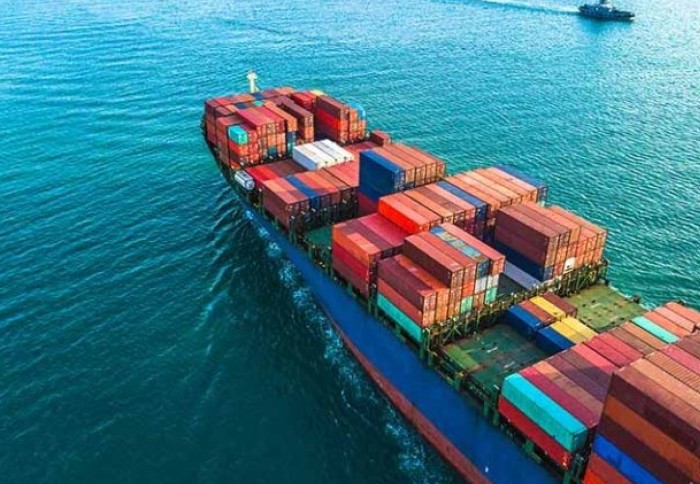Next SGI white paper - can natural gas help decarbonise the transport sector?
by Zara Qadir

Over a quarter of global greenhouse gas emissions and air pollutants come as direct result of us transporting people and goods across the world.
In addition, the transport sector (especially shipping and heavy goods transportation) is also one of the slowest sectors to decarbonise.
Dr Jamie Speirs, lead author of the Sustainable Gas Institute (SGI) White Paper Series, is carrying out his next review on this topic in order to understand if there is a potential role for natural gas in reducing emissions and air pollution in the transport sector.
What is the scope of this next white paper?
We are trying to answer a lot of smaller questions in order to understand the bigger question, can natural gas help to decarbonise the transport sector. For example, is natural gas a bridging technology or could it provide significant decarbonisation longer in to the future? And what determines those factors? Also, what are the implications for greenhouse gas emissions but also for other air pollutants, such as nitrogen oxide (NOx) emissions? These air pollutants not only have a significant impact on human health, but their impacts are even more immediate than the impacts of climate change.
Why do you think the transport sector has been so slow to decarbonise?
This white paper is not looking at every aspect of transport. For example, we are not exploring air transport which is particularly difficult to decarbonise given the energy involved. We are mainly looking at global heavy goods vehicles (HGVs) and international shipping, with shipping having recently established a 50% CO2 reduction target by 2050. We are also not looking at private cars. as it’s easier to introduce technologies such as batteries and electric motors. This is because generally these vehicles do not cover significant distances and therefore they don’t need to have such big ranges. Whereas trucks and ships travel significant distances with huge loads.
Why has natural gas been suggested as an alternative transport fuel to help combat these emissions?
At the moment, trucks and ships run on diesel or heavy fuel oil (for ships). Heavy fuel oil often has more contaminants – more sulphur, therefore more sulphur oxides emissions, which contribute to acid rain. Natural gas is cleaner than those fuels and tends to have less sulphur and produce less CO2 in combustion. It also produces less particulate emissions.
However, natural gas does present other challenges because methane is a greenhouse gas in itself. If you are moving methane around as a fuel there can be leaks in the supply chain, at fuelling stations, or during containment, or via combustion when methane is emitted into the atmosphere. Methane is also significantly more climate forcing than carbon dioxide, so a small amount of methane can have a big impact on climate change. In our review, we will build on previous research on methane emissions from the first white paper ‘Methane & CO2 emissions from the natural gas supply chain‘.
Why can’t we go electric?
You can electrify trucks but it becomes increasingly challenging with longer journeys. Ferries taking short journeys can be electrified given their operation cycle where they may spend a longer period of time at dock. But with longer international ship journeys it becomes harder to do this because of the operating range. You need more batteries to supply this range. However, there are hybridisation options and with various improvements in battery technology (i.e. reduction in cost/increasing energy density) options for battery applications. However, in the meantime, we need to understand what role natural gas can play in decarbonising these transport modes and for how long.
What companies are already using natural gas as fuel in heavy vehicles/shipping? What carbon savings or air quality measures have already been made?
Liquid natural gas (LNG) fuelled trucks are already operating in countries like China, where 4% of the 6 million strong HGV fleet is operated using LNG. IVECO, Volvo, Scania and Mercedes are all now engaged in manufacturing these types of trucks. In shipping, there are thought to be over 100 vessels using LNG as fuel with a similar number ordered by ship operators and currently being built. These operate primarily across Europe, the US Asia and global shipping routes.
Will the white paper be looking at infrastructure?
The white paper will also be looking at infrastructure. For example, what is the best location and method for piping gas to places where ships /trucks refuel? Also, how much will this cost, and what are the emissions associated with infrastructure?
8. Is anyone else working with you on the white paper?
As with all white papers, we have an expert panel including members from Cadent, Rolls-Royce, Committee on Climate Change and Marine, Coastguard Agency, BP, Shell, University of British Columbia, Wartsila and International Energy Agency.
The report will be published towards the end of 2018.
Please download the Scoping Note for the white paper. If you would like to receive a copy of the report when it is available please sign up to our newsletter.
If you are interested in finding out more about the new white paper, please contact the SGI White Paper lead, Dr Jamie Speirs (jamie.speirs@imperial.ac.uk).
Article text (excluding photos or graphics) © Imperial College London.
Photos and graphics subject to third party copyright used with permission or © Imperial College London.
Reporter
Zara Qadir
Department of Earth Science & Engineering